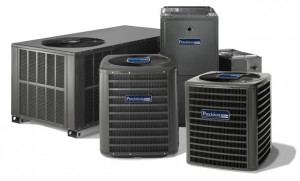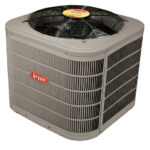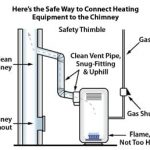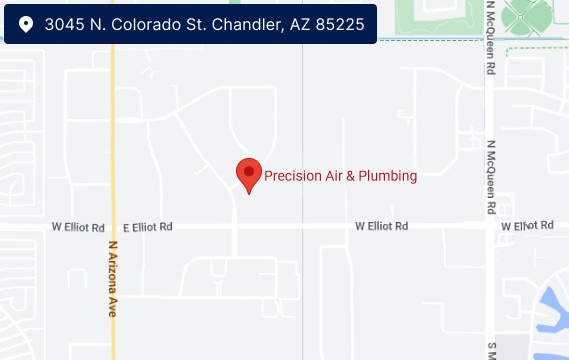Why do my lights flicker when my AC unit turns on?
Electricity makes our modern world possible. Without it, we would have no cell phones or dishwashers or air conditioners. But it can be a frightening foe when it starts to misbehave. Many homeowners notice that their lights flicker when their air conditioner turns on, prompting them to call an electrician or air conditioner professional in a panic. Does that flickering mean there’s something wrong with the power or the air conditioner?
When the Lights Go Dim
If you think of the electricity in your home’s wiring like the water in your plumbing, it can make it easier to understand why flipping on the air conditioner can make the lights dim briefly. Like the water in your pipes, there is only so much electricity to go around at any given time, especially in older homes with smaller electrical mains.
When you turn on a high-demand appliance like a modern air conditioner, the initial power cost can put a massive drain on the available electricity. Just like when you flush the toilet while someone’s in the shower and the water pressure has to be split between the two fixtures, when your air conditioner kicks on, it diverts some of the power in your system.
For a normal-functioning air conditioner, this happens for just a split second — but depending on the sensitivity of your eyesight, a split second can be very noticeable. In fact, most people can easily distinguish 10 to 25 flashes of light each second. Many can detect 50 flashes per second. So even if your air conditioner only needs to draw extra electricity for 1/10 of a second to start running, it will seem that something odd is happening.
In reality, what’s happening is probably a very normal response to a limited amount of power being funneled into your home and the large demand being placed on that supply. When your air conditioner causes the lights to flicker each and every time it comes on, or if you’ve recently had an air conditioner upgrade and suddenly notice this symptom, don’t get nervous. It’s always a good idea to call in a professional to check things out, but you have very little to worry about.
Flickering Lights Aren’t Always OK
Usually, flickering lights are a normal result of a high demand on a limited power supply, especially in homes 30 years old or older with original electrical boxes. In rare instances, it can indicate trouble, so you should pay close attention to the way the lights behave when they flicker. Observe whether they flicker in particular parts of the house more than others, and what other appliances may cause them to flicker.
Lights that dim for a long time, get brighter before they dim or that only dim on particular circuits may indicate bigger problems than a heavy electrical demand. If they flicker when the air conditioner isn’t on, or only during certain times of the year independent of the air conditioner, you should have a professional evaluate your system for safety. Sometimes old wire connections pull apart causing shorts, breakers malfunction, or animals chew through wiring, creating unsafe conditions.
How do I fix lights that flicker when I turn on my AC?
When the lights flicker, it’s not always a sign of trouble in the wiring. More often than not, it’s just a heavy load on your electrical current temporarily reducing the amount of electricity available for your light bulbs and other appliances. This small drain isn’t anything to worry about and it’s not going to damage your appliance, but if you’re very concerned, call an air conditioning professional or electrician to check your system for your own peace of mind.
Once you’ve had your electrical system checked by a professional and are certain that there’s nothing wrong with it, you have a few choices. If you only use your air conditioner seasonally, you can simply choose to ignore it without any consequences. You can have your service upgraded, or a have a soft starter added to your air conditioner to reduce the electrical drain on startup.
Can AC units cause a power surge?
Yes, AC units can cause power surges in your home. When you turn on your AC unit, it reduces the amount of electricity available for other devices. Similarly, when you turn it off, the sudden cessation of power consumption can create a brief increase in voltage throughout your home because the current it was drawing suddenly has nowhere to go. This voltage spike, known as an internal power surge, can be harmful to sensitive electronic equipment like HDTVs and computers.
While AC units are not the only culprits, they are one of the most common causes of internal power surges due to their size, frequent on-off cycling, and the amount of power they draw. The surge of excess voltage can potentially damage electronic components, rendering them useless. Hence, it is essential to take precautions to protect your electronics from such power surges.
How do I stop my AC from causing power surges in my house?
There are several preventative measures you can take to protect your home and sensitive electronics from power surges caused by your air conditioner:
- Inspect your wiring: Have an electrician inspect your home’s wiring, especially if you have an older home. Faulty or substandard wiring can exacerbate power surge issues.
- Use surge protectors: Invest in surge protectors for expensive and delicate electronics. Surge protectors, such as power strips and surge protector outlets, act as barriers between your devices and the electrical source. They block excess voltage from reaching your electronics in the event of a power surge, safeguarding them from potential damage.
- Install a whole-home surge protector: Consider installing a primary surge protector device at your primary breaker box. This protector functions similarly to power strips and safeguards your entire home’s electrical system from power surges.
- Invest in high-efficiency AC units: If possible, opt for high-efficiency air conditioning units over older models. Older units tend to draw more power, making them more likely to cause power surges when they abruptly stop drawing electricity. High-efficiency units not only reduce the risk of voltage spikes but also help save energy and lower your utility bills.










